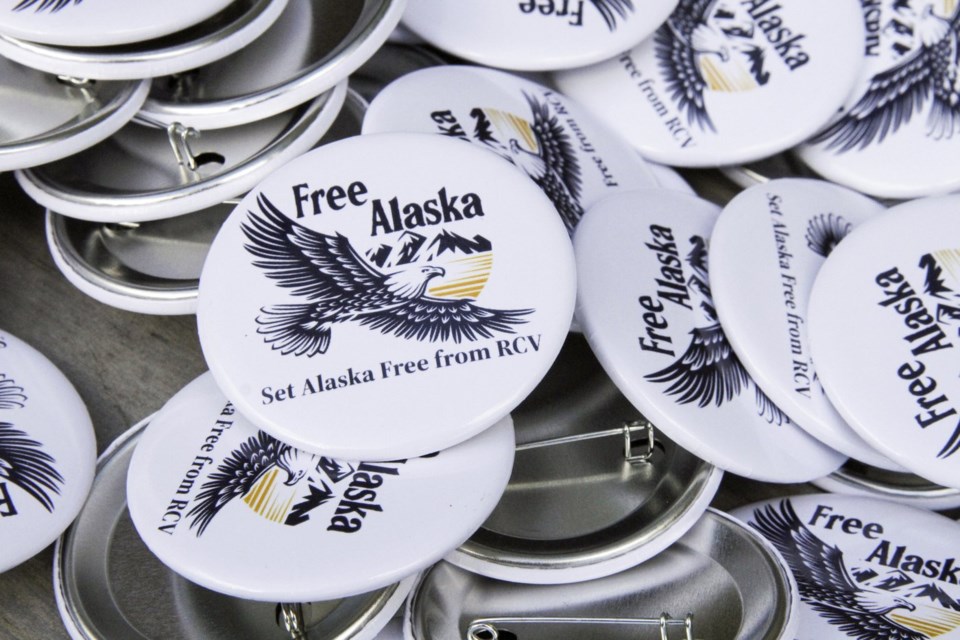JUNEAU, Alaska (AP) ā The Alaska Supreme Court cleared the way Thursday for a measure aimed at repealing the stateās new open primary and ranked choice general election system to remain on the November ballot.
The court heard arguments earlier in the day appealing Superior Court Judge Christina Rankinās that the state Division of Elections complied with deadlines and acted within its authority when it allowed sponsors of the repeal measure to fix errors with petition booklets after they were turned in.
The short, written order simply said it affirmed Rankin's decision and said an opinion explaining the high court's reasoning would be issued later.
The measure seeks to repeal provisions of a 2020 voter initiative that replaced party primaries with open primaries and instituted ranked choice general elections. Under the open primary system, voters are asked to pick one candidate per race, with the top four vote-getters, regardless of party affiliation, advancing to the general election.
The new system was and is being used again . Many of this yearās legislative races had fewer than four candidates in the primary.
Supporters of ranked choice voting say it gives voters more choice and rewards candidates who appeal to a broader portion of the electorate. itās confusing and pushes voters to rank candidates they might not support.
In this case, the Division of Elections found problems with more than 60 petition booklets ā most of which involved a person whose notary commission had expired ā and began notifying the initiative sponsors of the problems on Jan. 18, six days after the petition was turned in, attorneys for the state and plaintiffs have said. People who circulate petition booklets as part of the signature-gathering process for initiatives must attest to meeting certain requirements and have their affidavits notarized or certified.
Ultimately, the repeal measure sponsors returned 62 corrected booklets before the division completed its signature count in March. Attorneys on both sides have said the measure would not meet the signature requirements to qualify for the ballot if those 62 booklets were thrown out.
Scott Kendall, an attorney representing the three voters who sought to disqualify the measure from the ballot, told the court Thursday the division acted arbitrarily in its treatment of booklets with errors, including rejecting some outright, releasing some back to the sponsors without taking scans of them first and deciding not to return one it found had a notary error because it had discovered that later in the signature-review process.
āWe can't allow a Division of Elections to have that kind of latitude,ā he said.
Kimber Rodgers, an attorney for the state representing the division, said the division acted diligently and allowed for corrections to be made within the 60-day signature review window. She said given the number of booklets with notary errors, the division told sponsors that election officials would like to get the booklets back 10 days before the end of the review period to allow time to verify those signatures. But she said the actual deadline was the end of the 60-day period.
Rodgers said the division made a āreasonableā decision on the booklet with a notary error found later in the process, since the initiative already was going to have enough other signatures to qualify for the ballot without it.
Kendall in a text message after the Supreme Court's ruling said that despite ādemonstrated irregularitiesā in the division's handling of the initiative, the justices āwere obviously unwilling to reverse the superior court.ā
Kevin Clarkson, a former state attorney general who represented the repeal measure sponsors, said by email: āIt was very rewarding to have the court so quickly see through the smoke the other side was putting out.ā
Lael Harrison, a senior assistant attorney general, said the Department of Law was grateful for the court's quick decision, which Harrison said came in plenty of time for the division to meet ballot printing deadlines.
Becky Bohrer, The Associated Press




